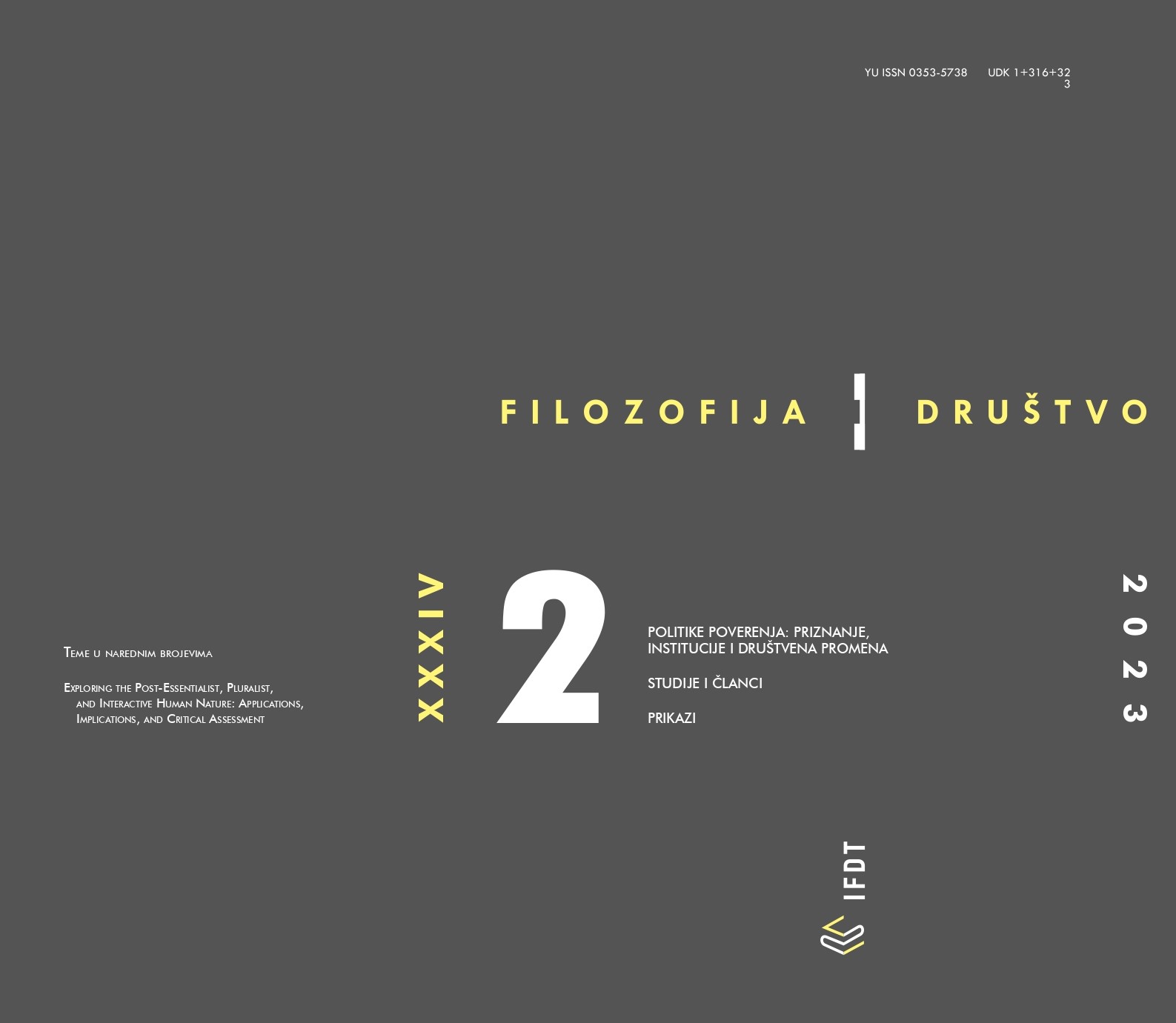PHRASEOLOGY “WITHOUT MEANING”: POLITICS OF EMPTINESS
PHRASEOLOGY “WITHOUT MEANING”: POLITICS OF EMPTINESS
Author(s): Aleksandar Ostojić, Aleksandar ČučkovićSubject(s): Politics / Political Sciences, Politics, Language and Literature Studies, Theoretical Linguistics, Phraseology
Published by: Institut za filozofiju i društvenu teoriju
Keywords: phraseology; politics; empty signifier; Laclau; Europe; bureaucracy
Summary/Abstract: We have heard many times expressions such as: “empty words”, “empty talk”, “hot air”, but is there really an empty “phraseology”, one that does not mean anything, i.e., that does not have a clear referent (the idea it refers to)? Showing the possibilities of such phraseology without meaning, the paper examines its use in politics, focusing on bureaucratic language that shapes our political reality, and can be found in many constitutional documents of the EU, US, or even UN. Namely, we will try to show that between general and particular meaning, there is a huge gap, an emptiness, which is used by a certain type of speech, in order to absorb every other language and its performative powers. Our criticism will move in two directions: the first has the task of showing the meaning(less) character of political bureaucratic phraseology as such, and its passivizing or non affirmative effects. The other one comes down to examining the ideological background of Eurocentrism, detecting the hegemonic character of the idea of Europe (and Western civilizations) embedded in its political language. Starting from Ernesto Laclau’s understanding of the “empty signifier” and the necessary function it has in the foundation of the system (especially a hegemonic one), through the history of the discourse of the idea of Europe, we will show the possibility and use of “emptiness” in meaning, especially when it comes to core values that are set for the foundation of one’s politics.
Journal: Filozofija i društvo
- Issue Year: 34/2023
- Issue No: 2
- Page Range: 348-363
- Page Count: 16
- Language: English

